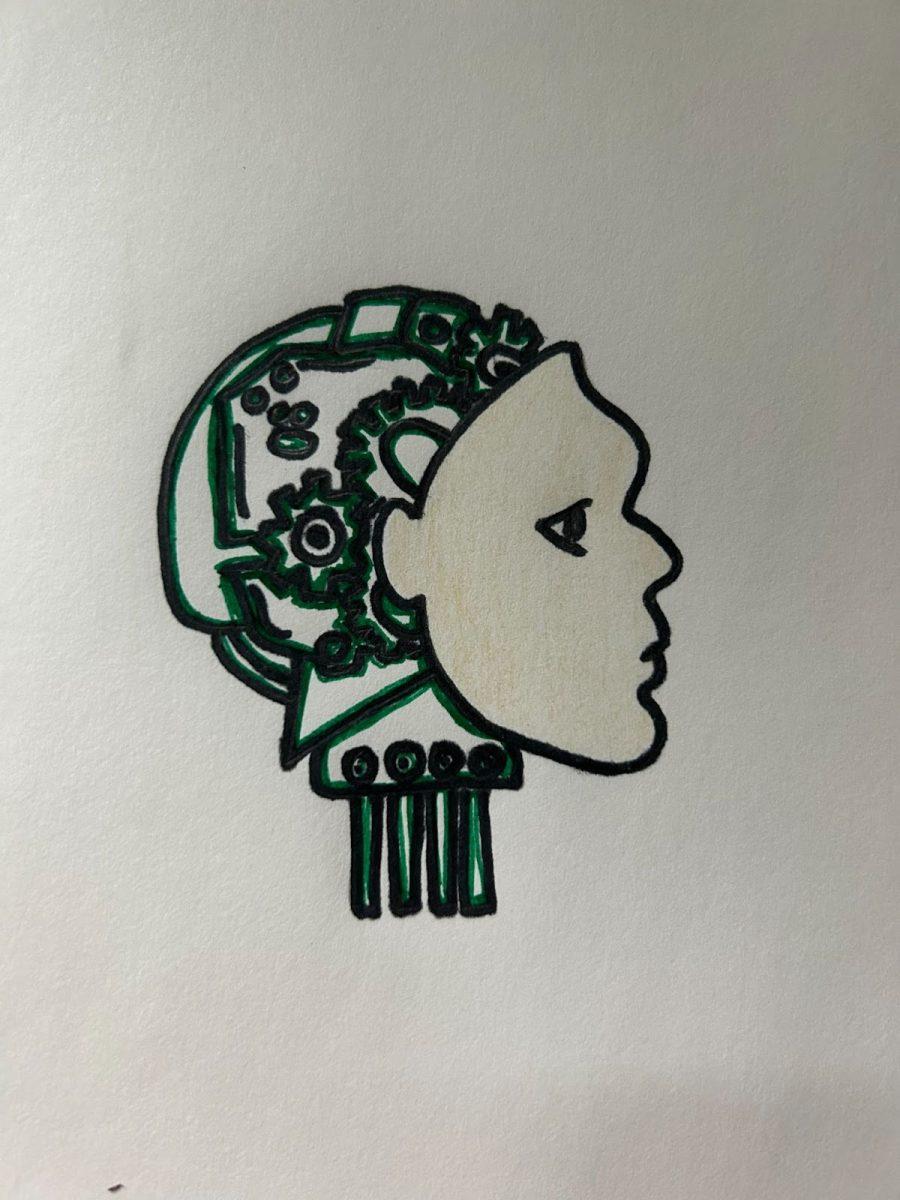The term “artificial intelligence” (AI) came into existence in the ’50s. In 2023, AI has reached the entire world, in a million different ways — whether it’s a middle schooler using ChatGPT to write an essay, or a lawyer using AI to write up an entire legal document. It leaves us with a scary question: Can we trust it? Today, it brings the answer to any question — correct or incorrect — right to the tips of your fingers, and it can be used for almost anything. For better or worse, adults are beginning to see the impacts of AI in their workplace, family, and children’s education. Depending on how AI has impacted their livelihood, their perspectives on its application may vary. Many adults simply see AI as cheating and plagiarism, whereas others view it as something we can learn from. This discrepancy has created issues, especially in the workplace, where many have been fired for using it, but some have been praised. For example, Steven Schwartz, a lawyer representing a man suing an airline in a routine personal injury suit, was fined $5,000 for using ChatGPT to prepare an entire case file in court.
Others have also begun to utilize AI in their workplace. Kelly Jones, an educator who currently serves as the director of professional development and diversity at Lane Powell, a law firm in Portland, has a very adamant take on the topic. At Lane Powell, Jones and her colleagues use a program called Smart Brevity, which was created for communicating in an age where people’s attention spans have been greatly reduced. It uses AI to analyze a piece of writing and show how to cut it down or lengthen it. “We started using it for all the internal emails at work, and it would actually say at the top of the email, this is a three-minute read, or this is a two-minute read, and it would help you cut your content down. Which, as someone who enjoys the written word, drives me insane, but that’s the reality of communicating today,” said Jones.
Steph Barnhart, a freelance project manager based in Portland, has always found AI fascinating. In her personal life, she and some friends used ChatGPT to write a bedtime story. “It was my first time ever using it in a way that was so low stakes. No one was using it for work.” Barnhart began to dive deeper into this newfound use for AI in our daily lives. “I had finished planning a bachelorette party, and I thought it would be fun to ask AI to create an itinerary for me … It literally spit out the party that I had already planned.” In regards to education, when Barnhart was in school, she said she focused on the things she thought she would use as an adult, rather than what ended up actually being useful. “For me, what I was more interested in, and felt more excited about, I think I’ve stored better than the things I wasn’t excited about.” Now, she utilizes AI for the things she doesn’t remember how to do, or never learned.
The first calculator was called the Pascaline, invented in 1642 by a French inventor named Blaise Pascal. Fast forward to the 1950s, when they turned the calculator electronic. Now, when you use a calculator to solve a math problem, it’s not a big deal. When does AI become the modern-day calculator? Are people going to decide that it’s okay to not remember how to use punctuation, because you learned it a long time ago? Traditionally, when you plug something into the calculator, it runs through a proper formula in a millisecond before spitting out the only correct answer. But when answering a problem with AI, it instead runs through existing data to generate original content or an answer.
When asked about whether or not a calculator is the reason some forget math, Jones stated, “Well, you have to have enough literacy and critical thinking, right? So if you put in two plus two in a calculator and it tells you 27, you’ll know that it’s not right because conceptually, you understand what you’re asking the calculator to do.” Jones went on to say that like a calculator, AI is a tool, but unlike a calculator, writing is not that formulaic. When using AI to write an essay, it could put out anything, the only similarity is the structure. With math, most times there’s only one right answer. “I think it makes a lot of people dread writing, or not want to write.” Maybe the reason why AI is so terrifying to some is because it doesn’t run on a formula, it thinks on its own.
Jones suggested asking AI what it thinks of the use of AI. When prompted with this very question, ChatGPT generated a thorough list of pros and cons, ending with this: “The key is to strike a balance. AI can be a powerful tool when used thoughtfully and ethically. It should compliment human capabilities rather than replace them entirely.” The reason for AI was never to replace, it was always to be a tool. Employees are allowed to use a calculator in the workplace, but the calculator isn’t there to replace their critical thinking process entirely.
Humans are a delicate species. We feel, grieve, love, and hurt. There are parts of us that yearn for more and some that wish for less. For some reason, a blade piercing the skin could be less painful than being completely and utterly alone. We can only wonder if we passed some of those traits onto AI. The yearning for something incredible to happen, like a computer having a mind of its own so no one would ever have to lift a finger again, fuels our society’s advance. Some view AI as any other appliance, whereas others see it as a cheat sheet. If the entire world is at the tips of our fingers, is it just a tool, or could it be so much more?



































